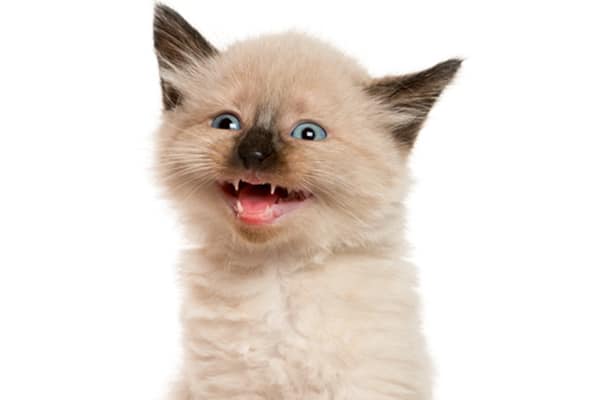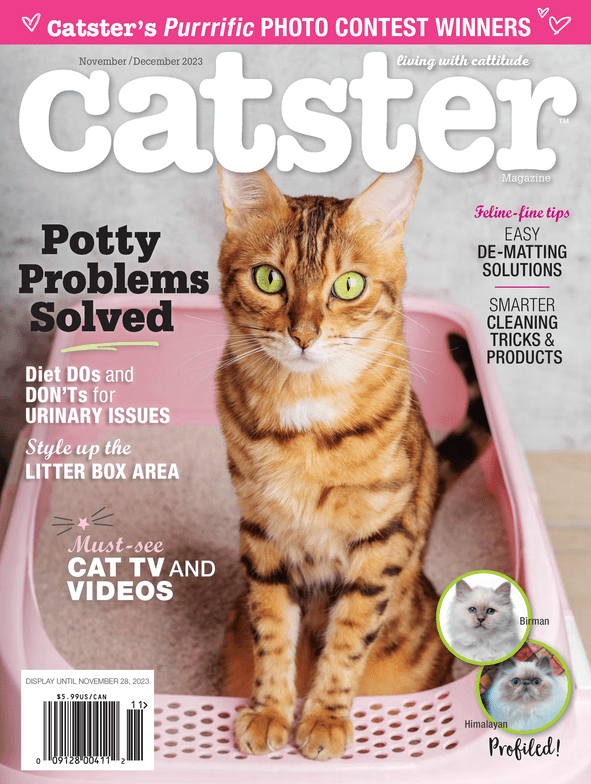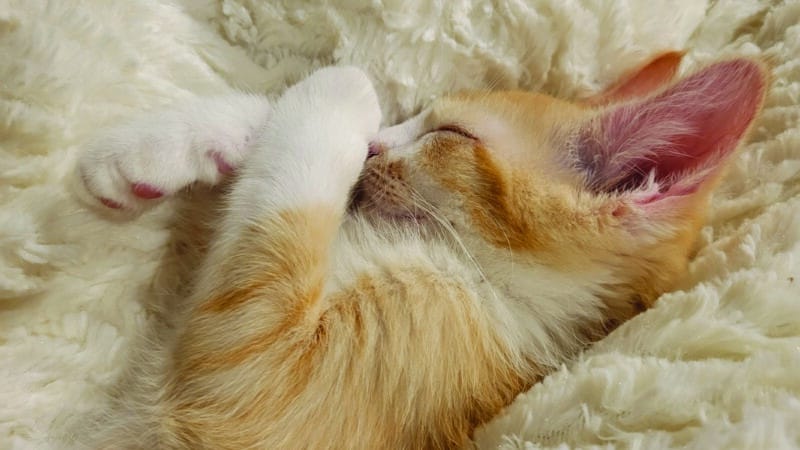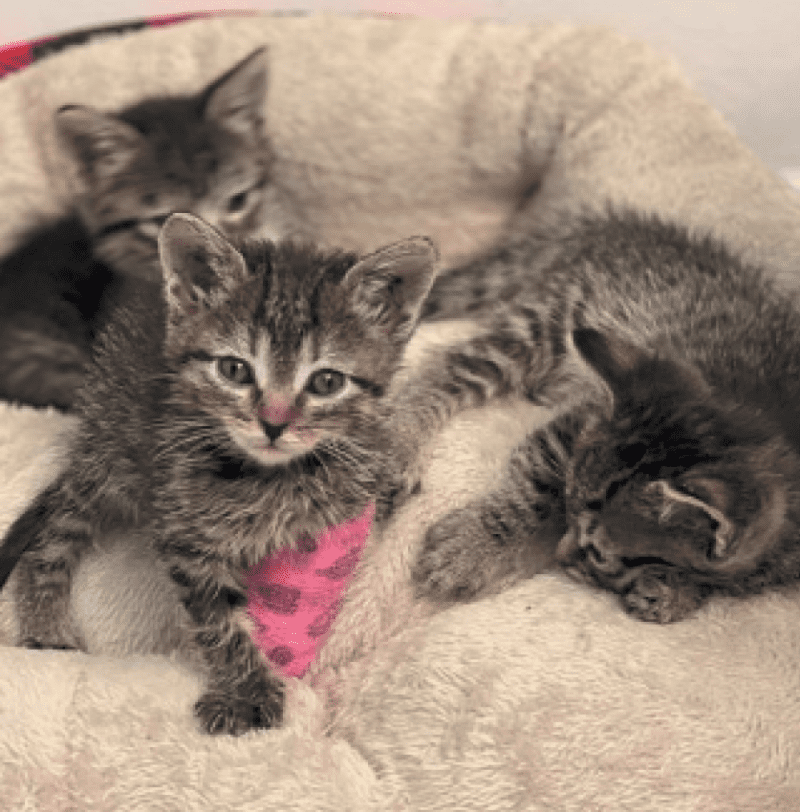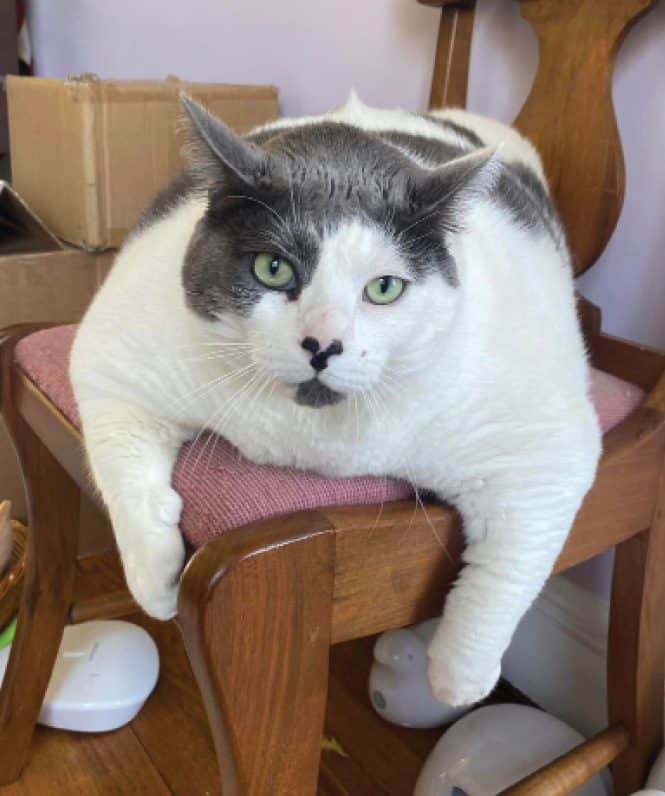Why do cats pant? If you’ve even seen your cat panting, you might wonder if it’s normal or not. Panting is a common way for dogs to cool themselves, but cats don’t typically pant. “We usually don’t see it happen, but there are some circumstances where it may be completely normal,” says Aimee Simpson, VMD, the medical director of VCA Cat Hospital of Philadelphia. So, why do cats pant? Read on to find out if a panting cat or a heavy-breathing cat is something to be concerned about.
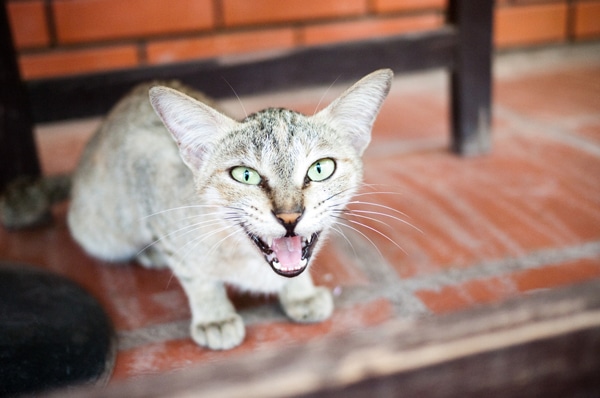
Some cats pant when excited or hot.
Like dogs, some cats might pant after vigorous exercise or to cool off. “Especially in young kittens, we’ll see exertional panting,” Dr. Simpson explains. “After they run around like crazy, sometimes they will pant for a very short period of time. I have heard that outdoor cats can use panting as a cooling mechanism if it’s really warm outside.” If you suspect your cat is panting or heavy breathing because he’s overheated, help him cool off by using the air conditioner or a fan. You can also give him a cool, damp towel to lie on.
Cats might pant when stressed or anxious.
“I’ve seen a lot of cats [pant] when they come into the vet for their exam,” Dr. Simpson says. “They’ve been in the hot car, and when they get here they will usually pant briefly until they lessen their anxiety a little bit.”
Persistent cat panting might signal a breathing issue or heart problem.
A hard time breathing is another reason why a cat might pant or breathe heavily. “Once they’re panting, they’re in respiratory distress, and it doesn’t really go away until we’ve treated the underlying cause,” Dr. Simpson says. “In older cats, if I see them panting I’m more worried about congestive heart failure. The other time that we can see cats panting is with respiratory issues like allergic bronchitis or kitty asthma. Usually those cats have a history of coughing.”
How long the panting goes on can tell you whether it’s problematic or not.
If your cat pants infrequently (for instance, a kitten who pants for a few minutes after running and playing hard), it’s probably nothing to worry about. But cat panting that doesn’t go away is a concern. “If it’s something that’s transient and just kind of goes away on its own, it’s less likely to be concerning than something that is persistent,” Dr. Simpson says. “Anything that’s persistent like that we’re always really worried about. Those cats should come in right away, especially if it seems like they’re lethargic or they’re not eating or anything else is off about their behavior.”
Your vet will check a panting cat’s lungs and heart carefully.
“I always recommend that they come in for an exam so we can listen to their heart and lungs and make sure that we’re not hearing a heart murmur or anything abnormal with the lungs that would make us concerned,” Dr. Simpson explains. If the initial exam turns up anything abnormal, your vet might want to take chest X-rays or perform an echocardiogram, which is a special ultrasound of the heart. These tests help the vet look for an enlarged heart, abnormal heart function or fluid in the chest cavity.
When in doubt, bring a panting cat in for an exam.
“I always tell people, it’s better to come into the vet and have the pet examined and have it be nothing than to not come in and wish that you had,” Dr. Simpson says.
Tell us: What do you think? Have you ever seen your cat panting? What was the cause of your cat’s heavy breathing? Tell us in the comments!
Thumbnail: Photography by GlobalP/Thinkstock.
Read more about cat health on Catster.com:

